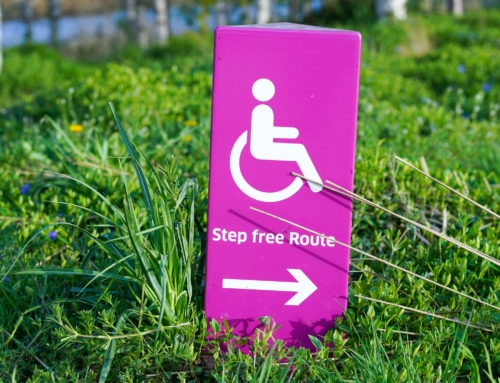Then Jesus said to his host, “When you give a luncheon or dinner, do not invite your friends, your brothers or sisters, your relatives, or your rich neighbors; if you do, they may invite you back and so you will be repaid. But when you give a banquet, invite the poor, the crippled, the lame, the blind, and you will be blessed. Although they cannot repay you, you will be repaid at the resurrection of the righteous.”
Luke 5: 12-14 NIV
I was always left a little mystified after reading this story about the banquet because it seems to promote charity and pity as motivations for including people with disabilities, but I know from reading the gospels that Jesus’ interactions with disabled people were based on dignity in relationship.
Then I read Lamar Hardwick’s book, Disability and the Church: a Vision for Diversity and Inclusion in which he offers a new perspective on Luke 5. Lamar’s explanation made everything clear to me and placed this parable into the broader context of a kingdom where everyone belongs based solely on their identity as a child of God, created in his image, whether disabled or not.
Then the owner of the house became angry and ordered his servant, ‘Go out quickly into the streets and alleys of the town and bring in the poor, the crippled, the blind and the lame.’
‘Sir,’ the servant said, ‘what you ordered has been done, but there is still room.’
Luke 5: 22 NIV (emphasis added)

This painting by Hyatt Moore shows people of various abilities and disabilities celebrating and feasting together. Scroll to the bottom of this post to watch a video of the painting being created.
Lamar connects this to the modern day parable many of us have heard in professional settings about prioritizing work load, or on Facebook encouraging you to have a healthy work/life balance, or in sermons admonishing us to keep God at the front of the queue when ordering our life. The illustration is that if you have variety of items to fit into a jar, you’ll be able to fit them all if you add them in order of largest to smallest: large rocks, pebbles, sand, and finally water. However, if you add them in the opposite order you’ll find it impossible and will have some large rocks leftover at the end.
Lamar explains that “prioritizing is the ability to start with what matters most because there will always be room left if we start with the most important things.”
If we pair the metaphor of this illustration with the parable for the banquet in Luke 5, we see that when people with disabilities are included first then they fit, and everyone else will also fit. When they are added as an afterthought, structures will likely already exist that will prevent them from truly belonging.
Scripture says the host will be blessed, and suggests that this blessing will arrive in the far future. However, I believe that the blessings the host will receive for inviting disabled people is not only a divine blessing bestowed upon him as compensation for his apparently self-sacrificing invitation but rather a blessing of community brought about by having everyone included at his banquet.
Have you found that your life is richer because of the blessings brought to communities by members with disabilities?
How have you seen communities prioritize accessibility and inclusion up-front rather than as an afterthought?
How can we bring this philosophy to all we do? Let’s reflect.


